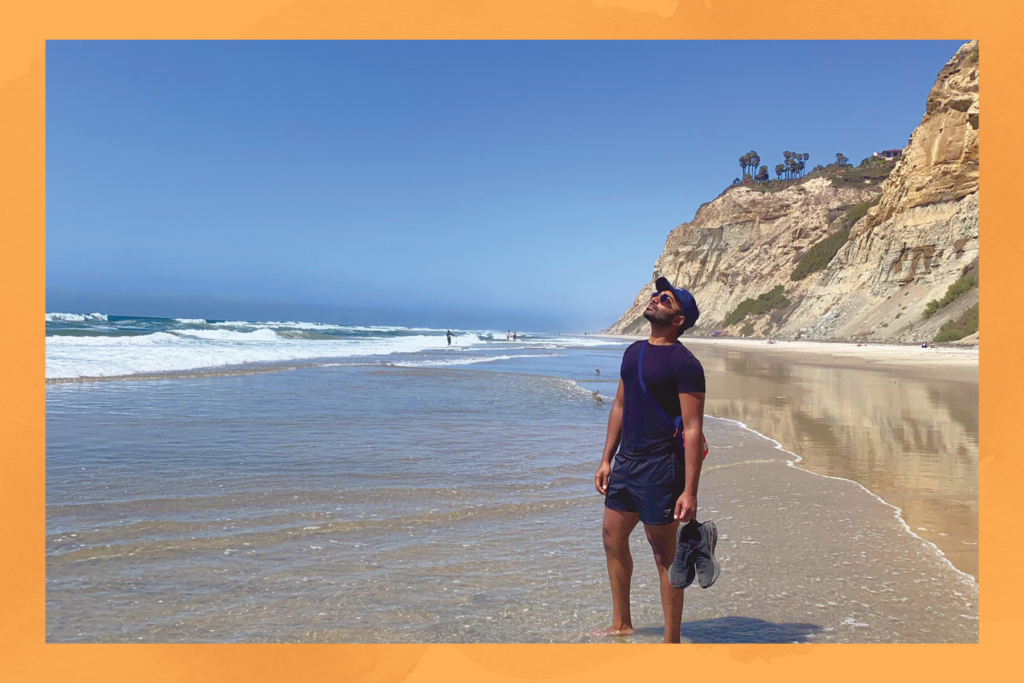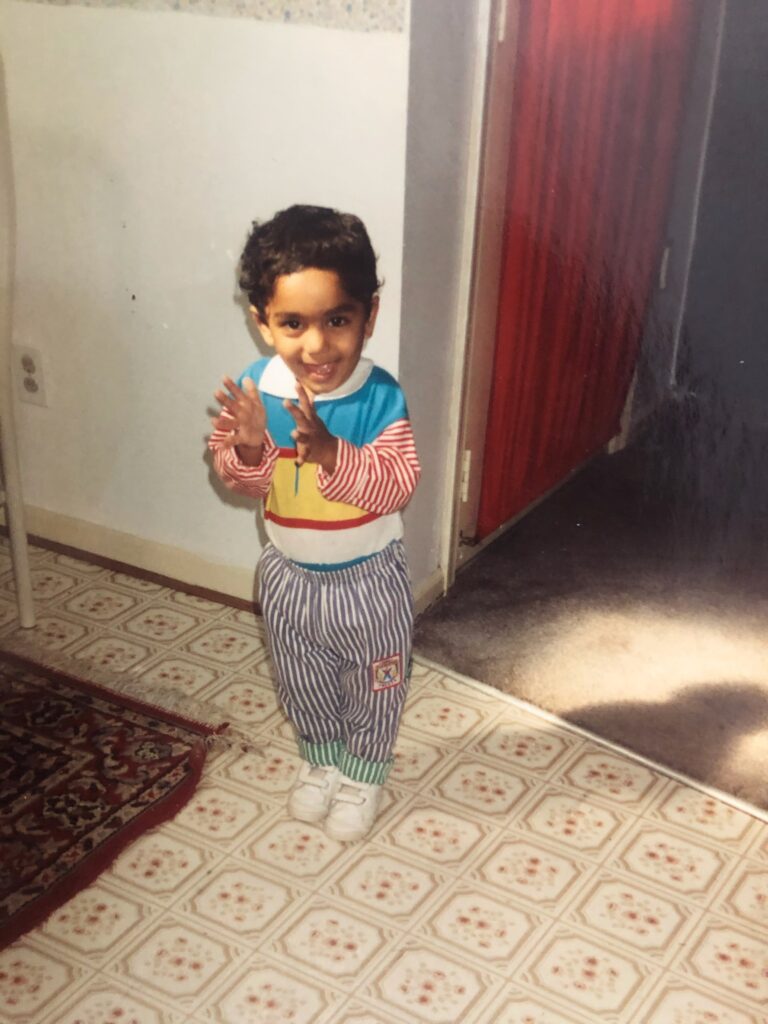
Part 1: Keep it in the Family
When you hear the words emotional vulnerability, what comes to your mind? I can’t help but imagine some readers cringing at the thought of this topic while others are hastily exiting this tab. For those brave souls still here, I think it’s time to address the elephant in the room — the sad fact that most of us are conditioned to fear vulnerability.
Now that I’m in my early-to-late twenties (read: 29) I’m realizing this fear is both incredibly taxing and equally unproductive. The silver lining? Life doesn’t have to be this bleak.
When quarantine hit, I didn’t have the Thursday networking events, the Friday happy hours, or the Saturday circuit parties to keep me occupied. I had my thoughts, my emotions, and unfortunately, only one ply of toilet paper due to the shortage and a non-refundable Instacart order. I spent much time alone and was confronted with the emotions that I tried so hard to tuck away over the years, only for them to expose themselves when I felt most vulnerable.
Spending 24 hours of my day locked in the house made me quickly realize that every day was a series of choices and I started to reflect on the emotions that I would suppress in aspects of my life. Daily, I would choose to ignore the issues my parents have with my lifestyle, choose to keep my insecurities away from my friends, and choose to pretend that I don’t want to love and be loved by the people I was attracted to. And that, folks, is what I like to call a major Y I K E S. I learned that what I really craved was the vulnerability and love that was missing in my life.
[Read Related: Dismantling Stigma: A Call for Culturally Conscious Mental Health Resources]
If you’re wondering if I’m one of those aging queens that’s publicly digesting their relationship traumas, the answer is yes, thank you for noticing.
But really: being emotionally vulnerable is not easy — yet it was something I wanted to do. So, I committed myself to being open with myself. I then sought out a therapist who is not only badass, but someone who I feel comfortable being truthful, vulnerable, and authentic with. In the few months of practice, I’ve learned to do this radical thing lately where I say exactly how I feel and try to express myself as earnestly as possible.
Let me tell you readers, it’s working.

Talking about emotions can always err on the line of cheesy-as-fuck, but I’m going to ask you to disarm yourself and open your mind a bit. So grab a drink (and pour one out for our exes) because we’ve got some trauma to shed.
So, let’s get personal.
No Safety Net
At the end of November 2020, I moved out of my gorgeous high-rise in the city to wait out the rest of quarantine with my parents. I had to face living separately from my best friend, who I shared a physical space with for over three years and worried whether or not we’d still be as close. I had to face the reality of my relationship with my parents and worried whether we’d clash because of who I am. And I had to face the fact that my dating experience during the pandemic was with a string of emotionally unavailable men who I had genuinely vibed with. I worried if I would ever connect with someone.
These realities were hitting me all at once, and I needed some sort of outlet. How it actually manifested itself was me digesting all of these things by collapsing in tears on the floor of my empty apartment. Since I was physically leaving this space, I decided to leave some emotional baggage behind.
Like any man in his late twenties, I sobbed uncontrollably in the comfort of my own solitude as the sun set behind me. When I dramatically turned in my key that day, I relinquished my aversion to vulnerability. There was no longer a safety net between me and all the shit I had to start facing.

[Read Related: The Art of Healing: Finding the Beauty Within Your Journey of Mental Health]
Worst Behavior
The first thing I needed to address was my relationship with my parents. As I chose to gracefully exit Washington D.C. and live with them in the NOVA burbs, I had to reflect on who they are as individuals, and who I’ve become myself. After all, we are our parents. We learn how they handle conflict resolution, we mold our relationships after theirs, and we incorporate their communication style. Knowing all this, I knew I had some serious unlearning to do.
Communication was never my parents’ strong suit, both culturally and within their own relationship. So I learned a very specific style of marinating-in-your-own-feelings-until-you-have-an-emotional-outburst type of communication strategy. In psychology, this is known as avoidance and repression. In our household, it’s known as just another Tuesday.

My relationship with my parents took a nosedive when I came out to them my senior year of high school. I remember hearing that I needed to change very often, to a point where it has now been almost ingrained in me to constantly change, alter, or improve myself. The specifics of me “changing” included: my words, my clothing, and even my name. I know that’s a heavy bit to just cover in one sentence, but I defer you to my OnlyFans, where I address these issues on a weekly basis.
Coming out was a very matter-of-fact way of attempting to show vulnerability and authenticity because I was yearning for my family’s love and acceptance — but I didn’t get it. If I couldn’t get the nourishment of genuine validation then I needed to find it elsewhere. Thus, I traded in my true-acceptance stilettos for some surface-level-affirmation kitten heels, and they have kept me afloat for some time.

I’ve prompted my mother, quite regularly, about the emotional barrier between us over the years, despite our relationship being very close otherwise. I’ve also shared some really deep hardship that I’ve been carrying for a few years to my brother, which took him by surprise. But, after having an honest conversation with him and unveiling how they have affected my life, we understood each other so much better and can move on from things we used to never speak about. These are relationships that I value so highly and have lasted MY ENTIRE LIFE. How was I not able to express this before?
But to be honest, it isn’t always hugs and joy. Bringing out these emotions hurt. These conversations are incredibly difficult and it may take a lot of time to process these deeply rooted issues. This was not who I was even a year ago, but this was the person I was going to be in the future. Genuinely honest, consciously vulnerable, and unequivocally gorgeous. Obviously that last part is a joke, but now that you’ve brought it up – yes, I am getting better with age.
So in the name of getting better over time, I will no longer accept anything less than authenticity in the relationships that matter to me. I want to love and be loved and I am willing to be vulnerable to achieve it. I’ve started my journey with emotional vulnerability with my family not because it’s easy but because it is the source of my behavioral patterns. As I move on and focus on the relationships with my friends and in dating, I know it won’t be easy but it will at least make for juicy writing.
“The practice of love offers no place of safety. We risk loss, hurt, pain. We risk being acted upon by forces outside our control.” — Bell Hooks




